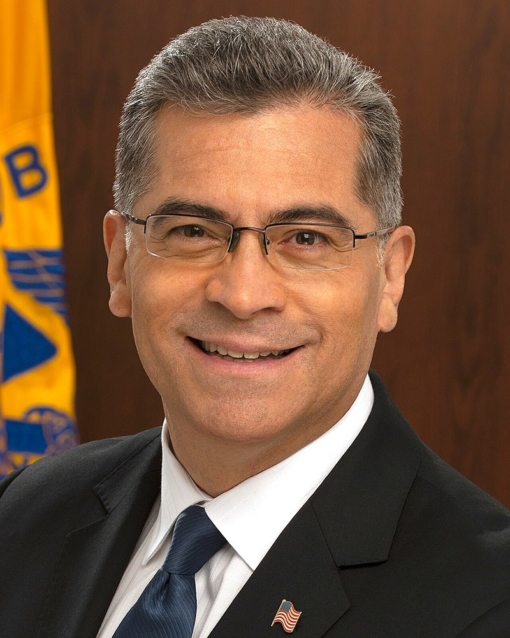
HHS Secretary Xavier Becerra
**** THIS IS AN UPDATE OF A BLOG POST FROM JANUARY, 2022 ****
HHS Secretary Xavier Becerra confirmed last Thursday that he could lower the large 2022 Medicare Part B premium increase right now, but he would rather wait until Medicare makes a final decision on whether to cover the controversial and expensive Alzheimer’s drug, Aduhelm.
“Once we have that determination, we’ll be able to fully assess what impact Aduhelm may have had on premiums for seniors in Medicare… We’re gonna make sure that seniors don’t pay more than they have to.” – HHS Secretary Xavier Becerra, 3/17/22
Medicare’s final decision is due by April 11, 2022. Back in January, the Centers for Medicare and Medicaid Services announced a preliminary decision to limit Aduhelm coverage to patients who are participating in approved clinical trials. That means most Part B beneficiaries would not have coverage for Aduhelm.
The arrival of Aduhelm, originally priced at $56,000 per year (and later lowered to $28,200) contributed to the highest increase in Medicare Part B premiums in recent history. Beneficiaries have seen their monthly premiums jump to from $148.50 to $170.10 this year. The preliminary coverage decision on Aduhelm should clear the way for the Biden administration to roll back the Part B premium increase, something seniors’ advocates have demanded since the premium hike was announced last month.
“Medicare’s preliminary decision to limit Part B coverage for the Alzheimer’s drug Aduhelm is good news for beneficiaries. Restricting coverage to patients in clinical trials is sound policy, given concerns about Aduhelm’s efficacy and side effects — and will significantly lower Medicare’ costs. Seniors on fixed incomes should not have to subsidize a questionably effective new drug, grossly overpriced by Big Pharma.” – Max Richtman, President and CEO, National Committee to Preserve Social Security and Medicare, 1/12/22
Last month, NCPSSM President and CEO Max Richtman sent a letter to the White House on December 14th asking President Biden to intervene.
“To many seniors and people with disabilities living on a fixed income, a $21 increase will cause hardship. The Part B premium hike will consume a significant amount of their Social Security Cost of Living Adjustment (COLA) at a time when inflation is making so many other goods and services… more expensive.” – NCPSSM letter to President Biden, 12/14/21
NCPSSM and other seniors advocates were encouraged earlier this week when HHS Secretary Xavier Becerra ordered the Medicare program to re-assess the Part B premium increase. The Centers for Medicare and Medicaid services now has until April to respond.
The grossly overpriced medication, whose efficacy and side effects are problematic, brought fresh scrutiny of Big Pharma price gouging. Independent analysis places the value of Aduhelm at a fraction of its $28,200 a year cost. The National Committee has long fought for Medicare to have the ability to negotiate prices with drugmakers. But the current version of the Democrats’ Build Back Better plan, currently stalled in the U.S. Senate, would not allow Medicare to negotiate the price of new drugs like Aduhelm. Build Back Better originally included more robust price negotiation, but it was diluted after objections from Democratic centrists.
“What makes Aduhelm’s exorbitant cost all the more unconscionable is that many in the scientific establishment do not think the drug is even safe or effective. The American Academy of Neurology has raised concerns about the drug’s safety — it can cause brain swelling — and the ‘absence of convincing scientific evidence of efficacy.’” – NCPSSM letter, 12/14/21
Meanwhile, NCPSSM has urged President Biden to reinstate the ‘reasonable pricing clause’ established by the National Institutes of Health in 1989 but later revoked. “Medicare beneficiaries and taxpayers should pay a reasonable price for effective drugs that are worth the amount manufacturers charge,” writes Richtman.
“It’s unlikely that the President would roll back the entire Part B premium increase,” says NCPSSM legislative and policy director Dan Adcock. “It’s more plausible that he would reduce the premium by about $11.50 per month, the amount attributable to the cost of Aduhelm.”


